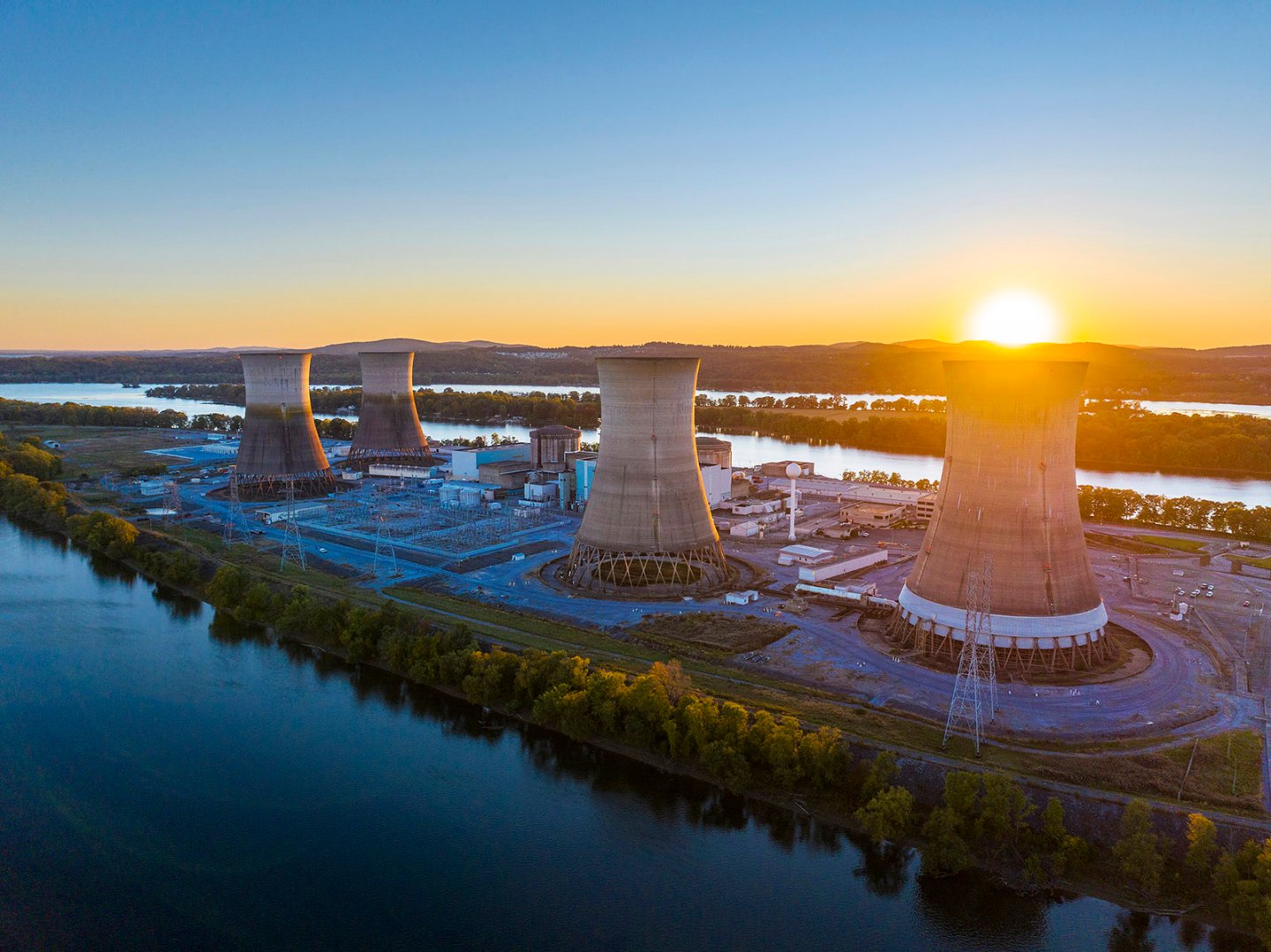I assume you've heard the news by now?
Nine months after announcing plans to restart Three Mile Island Unit 1 and use it to provide nuclear power to Microsoft server farms, Constellation Energy (CEG 0.75%) is doing it again -- announcing it's signed a similar deal with Meta Platforms (META +0.29%). Investors reacted immediately, bidding up Constellation shares as much as 15% pre-market open today (although the stock has given back its gains, and is now flat against yesterday's close).
In contrast, all sorts of other nuclear stocks are surging today. Constellation rival Vistra (VST 0.24%) gained 4.4% through 11:10 a.m. ET today. Nuclear plant construction firm Fluor (FLR +1.34%) stock is up 5.1%. And uranium fuel enricher Centrus Energy (LEU +4.04%) is doing best of all -- up 7.1%!

Image source: Getty Images.
What's all the (nuclear) fuss about?
Constellation described its latest nuclear power deal in a press release this morning. Instead of 3 Mile Island, the company will use its Clinton Clean Energy Center (CCEC) nuclear power plant in Illinois to provide power to Meta's server farms.
Beginning in June 2027 and extending out 20 years, the company will provide 1,121 megawatts (more than 1.1 gigawatts) of clean nuclear energy to Meta. The deal will support Constellation's plans to increase power output at CCEC by 30 megawatts. It will also extend the service life of the CCEC nuclear plant, which was first slated to close in 2017, and then had its lifespan prolonged through mid-2027, well into the 2040s.
Furthermore, Constellation noted that if power demand justifies it, the company might "extend the plant's existing early site permit or seek a new construction permit from the Nuclear Regulatory Commission to pursue development of an advanced nuclear reactor or small modular reactor (SMR) at the Clinton Clean Energy Center site."

NASDAQ: CEG
Key Data Points
What this means for Constellation... and for other nuclear stocks
So you can see why investors were so happy about Constellation's news this morning. For Constellation itself, the plan promises to leverage an existing investment and decades of sunk costs, to earn at least another 22 years' worth of profits for its shareholders. (For context, Constellation earned $3.7 billion from its power business last year.)
But the news has broader implications for the nuclear power industry as well.
Earlier this year, as you may recall, nuclear stock investors got something of a shock when it was reported that Microsoft might be hedging its bets on future demand for artificial intelligence (AI) services, and for the kind of power agreements it signed with Constellation to support them. Microsoft was reported to have canceled "a couple of hundred MWs" worth of data center leases in the United States, and to have "pulled back" on projects to lease new data center space.
Granted, one theory behind the pullback was that Microsoft wasn't able to find enough power for new data centers. But a secondary theory -- one concerning to nuclear investors -- was that Microsoft might not see enough future demand for AI to justify buying additional power even if it is available.
Today's power supply agreement between Meta and Constellation, however, would appear to allay those concerns somewhat. Maybe Microsoft doesn't see a need for a lot of additional nuclear power, beyond what it's already contracted for. But Meta definitely does, and has just signed up to pay for it.

NYSE: LEU
Key Data Points
Is it time to buy Fluor, Centrus, or Vistra stocks?
Now investors have to figure out how to react to this good news. Should you do that by buying Fluor stock, which helps build nuclear power plants? Or perhaps Centrus, which helps fuel them? Or is Vistra the better buy, as a direct competitor to Constellation and a presumed beneficiary of any trends that bolster Constellation?
That's not quite as easy a question to answer as it should be, however. At first glance, Fluor stock looks like the obvious buy. Priced under 4 (!) times earnings, Fluor stock certainly looks a lot cheaper than Centrus stock, which costs more than 19 times earnings, or Vistra, which costs more than 26.5 times earnings.
Fluor's earnings are currently inflated by one-time accounting gains related to its NuScale subsidiary, however. Once those gains roll off the back end next year, though, the stock's valuation will rise to a more reasonable-looking 17.5 times forward earnings. If you're contemplating an investment in Fluor, make sure to focus on that number.
Vistra stock, meanwhile, only recently turned profitable again. But it's growing like wildfire, earning $1.5 billion in 2023 and $2.6 billion in 2024 -- and expected to keep growing earnings in excess of 20% annually over the next five years. Vistra's dividend yield is tiny, only 0.5%, and its debt load is large. Still, I have a hunch it will make for a simpler investment than Fluor.
But Centrus is the investment that intrigues me most. Valued at just a $2.1 billion in market cap, Centrus has arguably the best growth prospects ahead of it as nuclear power becomes more popular. Profitable and with earnings expected to roughly double over the next four years, to more than $8 a share, resulting in about a 25% growth rate, tiny Centrus Energy just might be your best nuclear bet.








